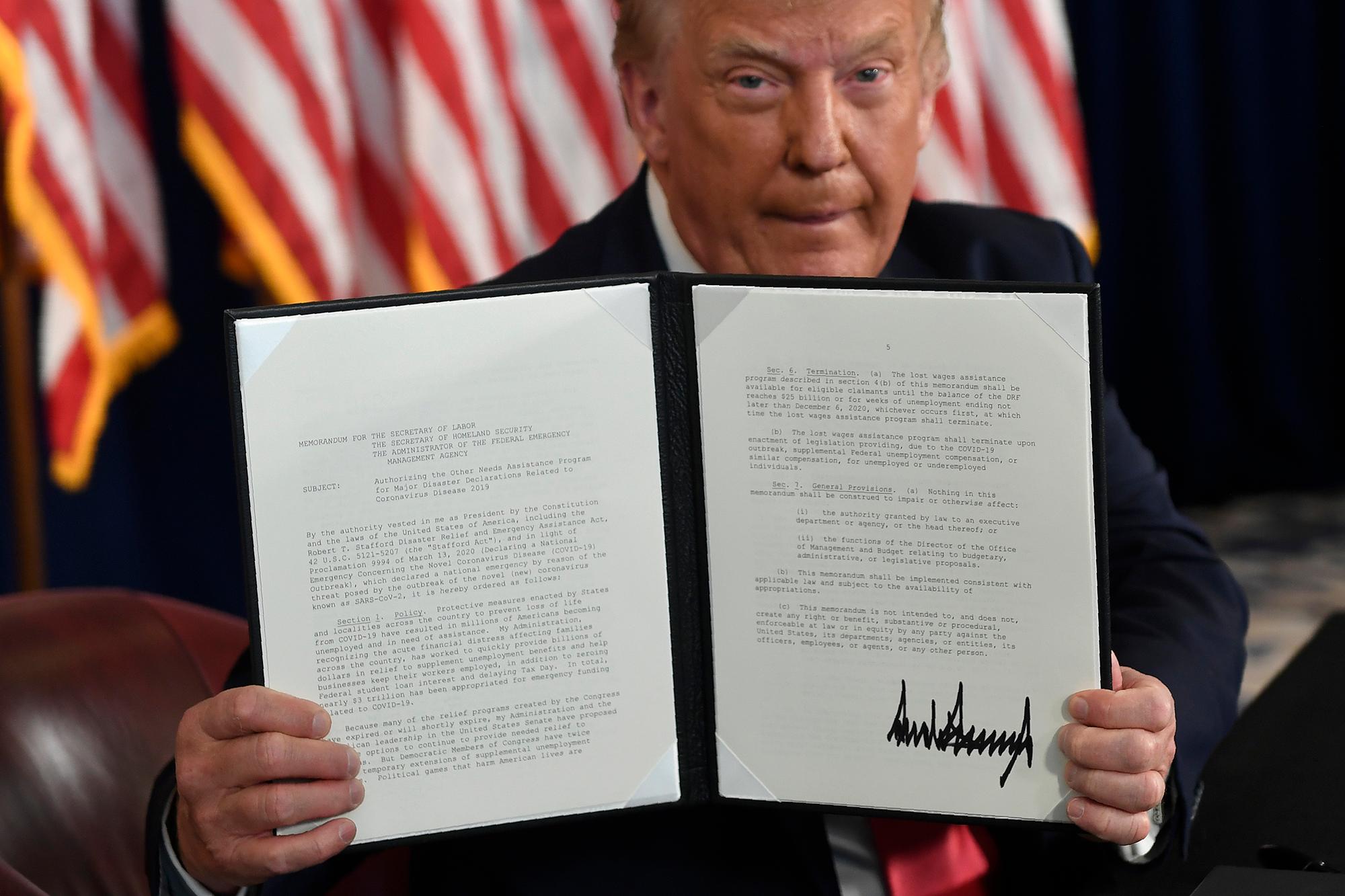
The reaction from members of Colorado’s congressional delegation to President Donald Trump’s coronavirus-related executive orders has ranged from criticism to praise and to silence.
Democrats roundly criticized the move and questioned the constitutionality of the president taking on the power of the purse.
Boulder-area Democratic Rep. Joe Neguse said the four measures fail to meet the challenge of the moment by “placing undue burdens on states to extend needed unemployment benefits, and threatening the viability of Social Security in order to provide an inefficient and lackluster fix to the economic crisis.”
Important coronavirus aid, or a 'false sense of hope'?
When unveiling the executive orders over the weekend, Trump said they will provide much-needed coronavirus relief. He’s deferring a payroll tax for those making less than $104,000, an idea floated by the White House during this last round of coronavirus talks that was met with a tepid response from Democrats and Republicans.
Another order instructs administration officials to consider if there should be a ban on evictions. He’s also deferring payments on federally-held student loans until the end of the year.
And he’s extending federal unemployment aid at $400 a week until Dec. 6 or until the money, which has been diverted from disaster relief, runs out. There’s also a catch: the federal government will only pay 75 percent, with states required to pony up the remaining 25 percent.
“There’s no way we’d have more than two or three weeks of the ability to do that,” Colorado Gov. Jared Polis said. “Given the budgetary constraints of the state, even that is stretching our resources to the max.”
Democratic Sen. Michael Bennet worried that these executive orders will give Coloradans a false sense of hope, “as they will not do what the president claims they will do."
"The only way to effectively fight the pandemic and provide real support to families is through bipartisan legislation,” Bennet said.
Many Democrats argue that the need is greater than these four issues. The negotiations covered a much broader set of issues, from help for schools and testing to liability protection for businesses, a priority for Republicans.
Democratic Rep. Ed Perlmutter said the executive orders “fall woefully short of what hard-working folks and small businesses need right now, will end up costing already strained state governments more money, and cut assistance to individuals.” He’s argued that Trump should focus more on negotiating a comprehensive deal.
However, Colorado Springs area Rep. Doug Lamborn applauded Trump “for showing leadership and putting the American people before partisan politics. Democrats seem to be focused on implementing their own personal wish-lists instead of getting Americans safely back to work.”
CPR News reached out to fellow Republicans Reps. Ken Buck and Scott Tipton, as well as Sen. Cory Gardner on Trump’s use of executive orders. None of their offices provided a comment for this story.
Are President Trump's orders executive overreach?
The partisan divide over the president’s executive orders doesn’t end with their content — Democrats are unhappy that the president took such unilateral action in the first place.
In the past, Bennet, Perlumtter and Denver-area Democratic Rep. Diana DeGette all supported Democratic President Barack Obama’s use of executive orders when dealing with issues like Dreamers. However, they justify their opposition to these new orders by President Trump arguing that, while the executive branch has broad discretion on immigration enforcement, Congress has the power of the purse.
“President Trump is trying to use funds Congress appropriated in a way that Congress never intended. He doesn’t have the power to do that,” DeGette said.
She stresses that Congress has the sole power to determine how tax dollars are used and that the president can’t just move those funds around with the Legislative Branch’s approval.
During the Obama administration, Colorado Republicans decried Obama’s use of executive orders from immigration to gun control. None have raised public objections to Trump’s weekend orders so far.
Nationally, few Republican lawmakers have criticized the president's actions. Sen. Lindsey Graham, a strong supporter of the president, said he would have preferred “congressional agreement.”
Republican Sen. Ben Sasse of Nebraska, however, didn’t hold back, calling the move “unconstitutional slop.”
"President Obama did not have the power to unilaterally rewrite immigration law with DACA, and President Trump does not have the power to unilaterally rewrite the payroll tax law,” Sasse said.
The statement earned Sasse a strong Twitter rebuke from Trump.
Talks between Democratic leaders and the White House broke down last week over the size and scope of the coronavirus relief package. Many Republicans are balking at spending another trillion dollars or more.
Aurora-area Rep. Jason Crow, a Democrat, said “nobody likes spending trillions of dollars to deal with this crisis.” But not dealing with it, he countered, will cost much, much more.
“These executive orders are not what the country needs,” he said. “The country needs leaders who are willing to roll up their sleeves and actually come to the table to get this done.”
No further leadership talks on a legislative package are currently scheduled.









